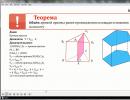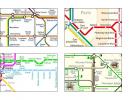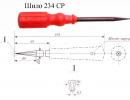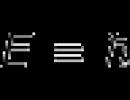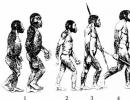Topic in English "Political System of Great Britain - Political system of Great Britain". The state system of Great Britain - The state system of Great Britain The legal system of Great Britain in English
The United Kingdom of Great Britain and Northern Ireland is a constitutional monarchy.
The power of Queen Elizabeth II is not absolute. It is limited by Parliament. The legislative body, Parliament, consists of two chambers: the House of Lords and the House of Commons.
The executive body consists of the central Government - that is the Prime Minister and the Cabinet of Ministers, who are responsible for initiating and directing the national policy.
The judiciary body is independent of both the legislative and the executive ones.
The Government derives its authority from the elected House of Commons. General elections, for all seats in the House of Commons, must be held at least every five years. The Government is normally formed by the political party which is supported by the majority in the House of Commons. The leader of the party is appointed the Prime Minister by the Queen and chooses a team of ministers. The second largest party becomes the Official Opposition with its own leader and the “Shadow Cabinet”.
The House of Lords is a hereditary chamber.
In Great Britain there is no written constitution, only customs and traditions.
British political system
The United Kingdom of Great Britain and Northern Ireland is a constitutional monarchy.
The power of the queen, Elizabeth II, is not absolute. It is limited to parliament. The legislative body, Parliament, consists of two houses: the House of Lords and the House of Commons.
The executive body consists of the central government - that is, the prime minister and the cabinet of ministers, who are responsible for making decisions and implementing national policies.
The judiciary is independent of both the legislative and executive branches.
The government receives its powers from the elected House of Commons. General elections to the House of Commons must be held at least once every five years. The government is usually formed by a political party, which is supported by a majority in the House of Commons. The leader of this party is appointed prime minister by the queen and selects a team of ministers. The second largest party becomes the official opposition with its own leader and “shadow cabinet.”
Membership in the House of Lords is hereditary.
Great Britain has no official constitution, only customs and traditions.
Photo of Queen Elizabeth II of England taken in London, October 24, 2014, while visiting the Natural History Museum.
(LONDON, ENGLAND - October 24, 2014. Photo by Chris Jackson)
REMEMBER
- The UK is a constitutional monarchy and a parliamentary democracy.
- The monarch is the head of the state (Queen Elizabeth the Second)
She doesn't rule the country, has ceremonial function; signs bills.
- The prime minister is the head of the government.
He is the leader of the party with the majority seats in the House of Commons.
- Parliament consists of two chambers or houses:
the House of Lords
the House of CommonsThe House of Lords consists of 651 MPs (elected) . It makes laws.
The House of Commons consists of 1203 non-elected peers. It can delay bills and ask for rewriting certain parts.
- The head of the both Houses of Parliament is the Queen. She is also the head of the executive branch.
Mind the articles:
- the Houses of Parliament
- the House of Lords
- the House of Commons
- the government
- But__ Parliament
* * *
Information to know about the Political System of the UK
- The legislative power belongs to Parliament. It makes laws.
- The House of Commons is more powerful: it decides national policy.
- The House of Lords has little political importance.
- The executive power belongs to the Government. It executes laws (puts them into effect.)
- Real power in the UK belongs to Parliament and the Government.
- The term “constitutional monarchy” means that GB is governed by Parliament, and the monarch is Head of State.
- The Queen has very little power. She has to put her signature on new laws even if she doesn’t like them.
- Her most important function is ceremonial. The Queen is a symbol of Britain’s long history and tradition. On great occasions she is driven through the streets in a golden carriage, guarded by soldiers.
- She represents Britain when she meets other heads of state. Every autumn she opens the Parliament. Every year she speaks on TV on Christmas day. She opens new hospitals, theaters and museums. After disasters she send messages to the families of the victims.
- The Queen of GB is also the Head of the Commonwealth and also the Queen of Canada, Australia, New Zealand, etc. The Commonwealth is an association of former members of the British Empire (British colonies) and Britain, which was formed in 1949.
Questions:
- What functions does Parliament have?
- What function has the Government?
- What does the Queen do?
- What does the term constitutional monarchy mean?
- Why does the House of Lords have little political importance?
- What do the letters MP stand for?
- Is the Queen of the UK also the queen of some other countries?
- Do you think the idea of monarchy is out-of date?
The British constitution is often called the unwritten constitution because, unlike the constitutions of most other countries it is not a single documents, but a set of laws.
The first British constitution was Magna Carta which the King John was forced to accept in 1215. Its fundamental principles formed the base of the present one.
Some information about Royal family.
1. The family name of the present royal family is Windsor. *
2. Queen Elizabeth II became Queen in 1952.
3. Her husband’s name is Prince Philip.
4. She has 4 children (Prince Charles, Princess Anne, Prince Andrew, Prince Edward)
5. Her favorite animals are dogs.
6. The British monarchs are crowned in Westminster Abbey.
7. There are 600 rooms in Buckingham Palace.
8. Queen Victoria reigned for the longest period.* This may sound very British, but the royal family ancestors were German. The present Queen’s great-great-grand mother, Queen Victoria (1819-1910) was born in Britain, but her mother and her husband were both German.
Extra information about the Political System of the UK
- Members of the House of Commons are elected by the voters of 650 constituencies: each constituency has elected an MP.
- The party, supported by the majority in the House of Commons, forms the government.
- The second large party forms the Opposition (the Shadow cabinet).
- The two main parties are the conservative party (the Tory party) and the labor party (Conservatives and Labour).
- Since the eighteenth century, the two parties have sat facing each other in the House of Commons.
- There are some other parties: the Liberal Party, the Party of Liberal Democrats, the Social Democratic Party, the Scottish National Party, the Welsh Nationalist Party, the Communist Party of Britain, the Communist Party of Great Britain.
- The present Prime-Minister is Theresa May(the leader of the Conservative Party).

- The Prime-Minister lives at 10, Downing Street.
Check Yourself what you remember on the political system of the UK
- The letters ‘MP’ means the ______________________.
- Parliament is ___________two chambers:______________________.
- The members of the __________________are not elected.
- The UK is divided into constituencies (electoral districts) that have their representatives in the ___________________.
- In the UK ___________________is held every four or five years.
- The party which wins the Majority of seats in the General Election forms the ____________.
- The leader of the winning party becomes the___________________________
- The members of the party of Parliament that didn’t win the election form the_____ to the Government.
The United Kingdom of Great Britain and Northern Ireland is a constitutional monarchy. It means that the sovereign reigns but does not rule.
Britain does not have a written constitution, but a set of laws.
Parliament is the most important authority in Britain. Technically Parliament is made up of three parts: the Monarch, the House of Lords; and the House of Commons. In reality the House of Commons is the only one of the three which has true power.
The monarch serves formally as head of state. But the monarch is expected to be politically neutral and should not make political decisions.
The present sovereign is Queen Elizabeth II. She was crowned in Westminster Abbey in 1953.
The House of Commons consists of Members of Parliament. There are 650 of them in the House of Commons. They are elected by secret ballot. General elections are held every five years. The country is divided into 650 constituencies. All citizens, aged 18 and registered in a constituency, have the right to vote. But voting is not compulsory in Britain. Only persons proud of corrupt and certain mentally ill patients don"t take part in voting.
There are few political parties in Britain thanks to the British electoral system. The main ones are: the Conservative Party, the Labor Party and the Liberal / Social Democratic Alliance.
Each political party puts up one candidate for each constituency. The one who wins the most votes is elected MP for that area.
The party which wins the most seats in Parliament forms the Government. Its leader becomes the Prime Minister. His first job is to choose his Cabinet. The Prime Minister usually takes policy decisions with the agreement of the Cabinet.
The functions of the House of Commons are legislation and scrutiny of government activities. The House of Commons is presided over by the Speaker. The Speaker is appointed by the Government.
The House of Lords comprises about 1,200 peers. It is presided by the Lord Chancellor. The House of Lords has no real power. It acts rather as an advisory council.
It"s in the House of Commons that new bills are introduced and debated. If the majority of the members are in favor of a bill, it goes to the House of Lords to be debated. The House of Lords has the right to reject a new bill twice.
But after two rejections they are obliged to accept it. And finally a bill goes to the monarch to be signed. Only then it becomes law.
Parliament is responsible for British national policy. Local governments are responsible for organizing of education, police and many others.
Topic translation: British political system
The United Kingdom of Great Britain and Northern Ireland is a constitutional monarchy. This means that the monarch is the head of state, but does not rule it.
Britain does not have a written constitution, but it does have a code of laws.
Parliament is the main government body in Britain. It consists of three parts: the Monarch, the House of Lords and the House of Commons. The House of Commons is virtually the only government body with real power.
The monarch is formally the head of state. The monarch must be politically neutral and must not make political decisions.
Currently Queen Elizabeth II. She was crowned at Westminster Abbey in 1953.
The House of Commons consists of parliamentarians. There are 650 of them. They are elected by secret ballot. General elections take place every five years. The country is divided into 650 electoral districts. All citizens over the age of 18 are registered in the electoral district and have voting rights. But voting in Britain is not compulsory. Criminals and the mentally ill do not take part in voting.
Thanks to the British electoral system, there are few political parties in Britain. The main ones are the Conservative Party, the Labor Party and the Liberal-Social Democratic Alliance.
Each political party nominates one candidate from each constituency. Whoever gets the most votes becomes the Member of Parliament for that constituency.
The party that wins the majority of seats in parliament forms the government. Its leader becomes prime minister. His main task is to form the Cabinet of Ministers. The Prime Minister usually makes policy decisions with the consent of the Cabinet.
The functions of the House of Commons are lawmaking and checking the activities of the government. The House of Commons is headed by the Speaker. The speaker is appointed by the government.
There are about 1,200 peers in the House of Lords. The Lord Chancellor presides. The House of Lords has no actual power. It serves more as an advisory board.
It is in the House of Commons that new bills are presented and discussed. If a majority of members of the House are in favor of passing the bill, it is sent to the House of Lords for discussion. The House of Lords has the power to reject a new bill twice.
But after two rejections, she is obliged to accept him. For final confirmation, the bill is sent to the monarch, who signs it. Only after this does the bill become law.
Parliament is responsible for British national policy. Municipal governments are responsible for organizing education, police and others.
Political System of Great Britain (2)
The United Kingdom of Great Britain and Northern Ireland is a constitutional monarchy. It means that the sovereign reigns but does not rule.
Britain does not have a written constitution, but a set of laws.
Parliament is the most important authority in Britain. Technically Parliament is made up of three parts: the Monarch, the House of Lords; and the House of Commons. In reality the House of Commons is the only one of the three which has true power.
The monarch serves formally as head of state. But the monarch is expected to be politically neutral and should not make political decisions.
The present sovereign is Queen Elizabeth II. She was crowned in Westminster Abbey in 1953.
The House of Commons consists of Members of Parliament. There are 650 of them in the House of Commons. They are elected by secret ballot.
There are few political parties in Britain thanks to the British electoral system. The main ones are: the Conservative Party, the Labor Party and the Liberal / Social Democratic Alliance.
Each political party puts up one candidate for each constituency. The one who wins the most votes is elected MP for that area.
The party which wins the most seats in Parliament forms the Government. Its leader becomes the Prime Minister. His first job is to choose his Cabinet. The Prime Minister usually takes policy decisions with the agreement of the Cabinet.
The functions of the House of Commons are legislation and scrutiny of government activities. The House of Commons is presided over by the Speaker. The Speaker is appointed by the Government.
The House of Lords comprises about 1,200 peers. It is presided by the Lord Chancellor. The House of Lords has no real power. It acts rather as an advisory council.
It"s in the House of Commons that new bills are introduced and debated. If the majority of the members are in favor of a bill, it goes to the House of Lords to be debated. The House of Lords has the right to reject a new bill twice.
But after two rejections they are obliged to accept it. And finally a bill goes to the monarch to be signed. Only then it becomes law.
Parliament is responsible for British national policy. Local governments are responsible for organizing of education, police and many others.
British political system (2)
The United Kingdom of Great Britain and Northern Ireland is a constitutional monarchy. This means that the monarch is the head of state, but does not rule it.
Britain does not have a written constitution, but it does have a code of laws.
Parliament is the main government body in Britain. It consists of three parts: the Monarch, the House of Lords and the House of Commons. The House of Commons is in fact the only government body with real power.
The monarch is formally the head of state. The monarch must be politically neutral and must not make political decisions.
Currently Queen Elizabeth II. She was crowned at Westminster Abbey in 1953.
The House of Commons consists of parliamentarians. There are 650 of them. They are elected by secret ballot.
General elections take place every five years. The country is divided into 650 electoral districts. All citizens over the age of 18 are registered in the electoral district and have voting rights. But voting in Britain is not compulsory. Criminals and the mentally ill do not take part in voting.
Thanks to the British electoral system, there are few political parties in Britain. The main ones are the Conservative Party, the Labor Party and the Liberal-Social Democratic Alliance.
Each political party nominates one candidate from each constituency. Whoever gets the most votes becomes the Member of Parliament for that constituency.
The party that wins the majority of seats in parliament forms the government. Its leader becomes prime minister. His main task is to form the Cabinet of Ministers. The Prime Minister usually makes policy decisions with the consent of the Cabinet.
The functions of the House of Commons are lawmaking and checking the activities of the government. The House of Commons is headed by the Speaker. The speaker is appointed by the government.
There are about 1,200 peers in the House of Lords.
The Lord Chancellor presides. The House of Lords has no actual power. It serves more as an advisory board.
It is in the House of Commons that new bills are presented and discussed. If the majority of members of the House are in favor of passing the bill, it is sent to the House of Lords for discussion. The House of Lords has the power to reject a new bill twice.
But after two rejections, she is obliged to accept him. For final confirmation, the bill is sent to the monarch, who signs it. Only after this does the bill become law.
Parliament is responsible for British national policy. Municipal governments are responsible for organizing education, police and others. The state system of Great Britain - Governmental structure of Great Britain Great Britain is a parliamentary monarchy (1). The power of the Queen is limited by the Parliament. It means that the sovereign reigns (2) but does not rule. Britain does not have a written constitution, but a set laws (3). Parliament is the most important authority in. Britain. It
comprises (4) the House of Commons, the House of Lords and the Monarch in its constitutional role. In reality the House of Commons is the only one of the three, which has true power. as head of state. But the Monarch is expected to be politically neutral (6) and should not make political decisions. The present sovereign of Great Britain is Queen Elizabeth II (the second). She was crowned (7) in Westminster Abbey in 1953.
The House of Commons has 650 elected Members of Parliament (MPs), each representing a local constituency (8).
They are elected by secret ballot. General elections are held every five years. The country is divided into 650 constituencies. All citizens aged 18 have the right to vote (9), but voting is not compulsory in Britain. The candidate polling the largest number (10) of votes in a constituency is elected. The functions of the House of Commons are legislation and scrutiny (11) of government activities. The House of Commons is presided over by the Speaker. The Government appoints the Speaker.
The House of Lords comprises about 1,200 peers (12). It is presided over by the Lord Chancellor. The House of Lords is made up of hereditary (13) and life peers and peeresses and the two archbishops (14) and 24 most senior bishops of the established Church of England. The House of Lords has no real power. It acts rather as an advisory council (15).
There are few political parties in Great Britain thanks to the British electoral system. They are the Conservative Party, the Labor Party and the Liberal Democratic Alliance (16). Each political party puts up one candidate for each constituency. The one who wins the most votes is elected MP for that area. The party which wins the most seats in Parliament forms the Government. Its leader becomes the Prime Minister. As head of the Government the Prime Minister appoints ministers, of whom about 20 are in the Cabinet - the senior group which takes major policy decisions (17). Ministers are collectively responsible (18) for government decisions and individually responsible for their own departments.
The second largest party forms the official Opposition, with its own leader and "shadow cabinet" (19). The Opposition has a duty to criticize government policies and to present an alternative program (20).
The new bills are introduced and debated in the House of Commons. If the majority of the members are in favor of a bill it goes to the House of Lords to be debated. The House of Lords has the right to reject a new bill twice. But after two rejections they are obliged to accept it. And finally the bill goes to the Monarch to be signed. Only then it becomes a law.
Parliament is responsible for British national policy. Much legislation applies through out Britain. England and Wales, Scotland and Northern Ireland have their own legal systems with differences in law and practice.
Great Britain is a parliamentary monarchy. The Queen's power is limited to Parliament, which means that the monarch reigns and does not govern. Britain does not have its own constitution, but only a set of laws. Parliament is given the greatest power. It consists of: the House of Commons, the House of Lords and the monarch, in his constitutional role. In fact, only the House of Commons has significant power.
The monarch performs the function of head of state formally. He must take a neutral political position and not make political decisions. The current monarch is Queen Elizabeth, who was crowned at Westminster Abbey in 1953.
The House of Commons has 650 members of parliament representing local constituencies.
They are elected by secret ballot. General elections are held every 5 years in 650 electoral districts into which the entire country is divided. All citizens over the age of 18 have the right to vote, although this is not mandatory. The candidate who receives the most votes is considered elected. The function of the House of Commons is to legislate and scrutinize government affairs. The House of Commons is headed by a chairman appointed by the government.
The House of Lords consists of 1,200 peers. The Lord Chancellor presides here. This includes the hereditary and living peri, two archbishops and the 24 most senior bishops, who are elected by the English Church. In reality, the House of Lords does not have full power to influence policy. It functions more as an advisory board.
Thanks to the British electoral system, the UK has the following political parties: the Conservative Party, the Labor Party and the Liberal Democratic Union. Each political party proposes its own candidate in each constituency. Whoever gets the most votes will become the Member of Parliament for that constituency. The party that wins the most seats in parliament forms the government. Its leader becomes prime minister. As chairman of the government, the prime minister appoints ministers, 20 of whom form the Cabinet of Ministers, which makes major policy decisions. Ministers are collectively responsible for government decisions and individually responsible for the work of their ministries.
The second largest party forms an opposition with its own leader and “shadow cabinet.” Her responsibility is to criticize government policies and introduce an alternative program.
New laws are presented to the House of Commons and discussed here. If the majority of members agree on the law, it is sent to the House of Lords for further discussion. The House of Lords has the right to repeal a new law twice and after the second rejection is obliged to pass it. Finally, the law falls into the hands of the monarch for signature. Only now can it be considered law in full.
Parliament is responsible for British national legislation, which applies to the whole of Britain. It is true that England and Wales, Scotland and Northern Ireland have their own legal systems with differences in laws and in their practical application.
Vocabulary
1. monarchy ["mɔnəkɪ] - monarchy
2. sovereign reigns - the monarch reigns
3. set of laws - set of laws
4. comprise - contain in oneself
5. serves formally -In formally speaking
6. neutral ["njuːtr(ə)l] - neutral
7. to be crowned - to be crowned
8. a local constituency - local constituency
9. vote - vote
10. polling the largest number - the one that received the most votes
11. scrutinizing - careful study
12. peer - peer (honorary title in Great Britain)
13. hereditary - hereditary
14. archbishop - archbishop
15. it acts rather as an advisory council - acts more like an advisory council
16. alliance - union
17. to take decisions - make decisions
18. to be (responsible for) - to be responsible (for)
19. "shadow cabinet"
20. to present an alternative program - introduce an alternative program
Questions
1. What is the most important authority in Great Britain?
2. Is the Monarch expected to be politically active?
3. How are the Members of Parliament elected?
4. What are the main political parties in Great Britain?
5. What are the functions of the House of Commons?


